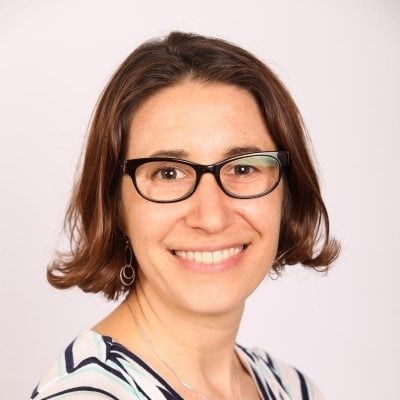This AJWS series on storytelling and justice is guest edited by Deji Olukotun.
Judaism relishes a good story. The Torah, Judaism’s anchor text, bubbles over with stories—stories of love, stories of betrayal, stories of conquest, stories of loss. Writing centuries later, the rabbis continued to use stories as a powerful medium through which to teach morals and lessons, including the importance of recognizing one’s own role—however small or supporting—in the stories of others.
One midrash, or rabbinic story, recounts the tale of Reuven, who intervened in a jealousy-fueled plot to kill Joseph and convinced his brothers to sell Joseph into slavery instead. The midrash indicates that:
If Reuven had known that …. [it ] would have [been] written of him [in the Torah] that ‘Reuven heard it, and delivered [Joseph] out of their hand’ (Genesis 37:21), he would have [instead] carried Joseph on his shoulder and brought him to his father.
In other words, had Reuven known that his actions would have been recorded for posterity, he would have been even more generous in carrying them out.
Likewise, the midrash asserts that in the Book of Ruth, when Ruth is hungry and Boaz arranges for corn to be left in the fields for her, “if Boaz had known that … [it] would have written of him [in the Book of Ruth] that ‘he handed her roasted grain’ (Ruth 2:14), he would have [instead] brought [Ruth] fatted calves and fed her!”
Through these examples, the midrash suggests that human beings care deeply about the reputational effects of their actions—if they believe that their actions will be recorded and remembered, they are likely to perform those actions in the best possible way.
Moreover, Reuven and Boaz share a distinctive quality that makes them particularly relevant for us—they are both supporting characters in a main character’s story. Reuven is a supporting character in Joseph’s story and Boaz is a supporting character in Ruth’s story. By featuring the perspective of the supporting character, the midrash reminds us that every person is both a main character in her own story and a supporting character in other people’s stories. Likewise, each of us has a story we tell about our lives, and in that story, we are the main characters and all of the other people who inhabit our stories are supporting characters. Some people have large roles (our parents and our partners, for example) and some of them have small roles (our second grade teacher, the barista at the café, the migrant farmer who harvested the grapes we ate at lunch).
The flip side of this is that, in addition to being the main characters in our own stories, we also serve as supporting characters in the stories of all the people with whom we come in contact. Each of us is a supporting character in the lives of our classmates, our family members, our co-workers and our roommates.
The midrash challenges us to fulfill both of these roles with a great sense of responsibility. Each of us needs to take very seriously our role as the main character in our own story. And each of us needs to take very seriously our role as a supporting character in everyone else’s story.
AJWS encourages our service program participants to strive to have a full and rich experience for themselves. We also encourage them to remember their role as supporting characters in the lives of their fellow service participants and in the lives of the people at home to whom they will be telling the story of their experience.
Perhaps most important of all, service program participants must be aware that they are supporting characters in the lives of the people in the community they are visiting. They must thus consider how their words and actions—however seemingly inconsequential at the time—may impact the memory of the community that they visit and figure into the subsequent stories that the host community will tell. By raising their consciousness, participants become not just supporting characters but also characters that support the community and our partnership with them for years to come.
If you have participated on an AJWS service-learning program or another service-learning program, how have you come to tell your story? How have you adjusted your behavior in the field or back home through the awareness of the stories that your host community might tell about you? How have these thoughts changed the way you think about your role in the world and the power of a story to effect change?
Rabbi Lauren Kurland is former Associate Director of Education and Community Engagement.
AJWS’s work in countries and communities changes over time, responding to the evolving needs of partner organizations and the people they serve. To learn where AJWS is supporting activists and social justice movements today, please see Where We Work.

